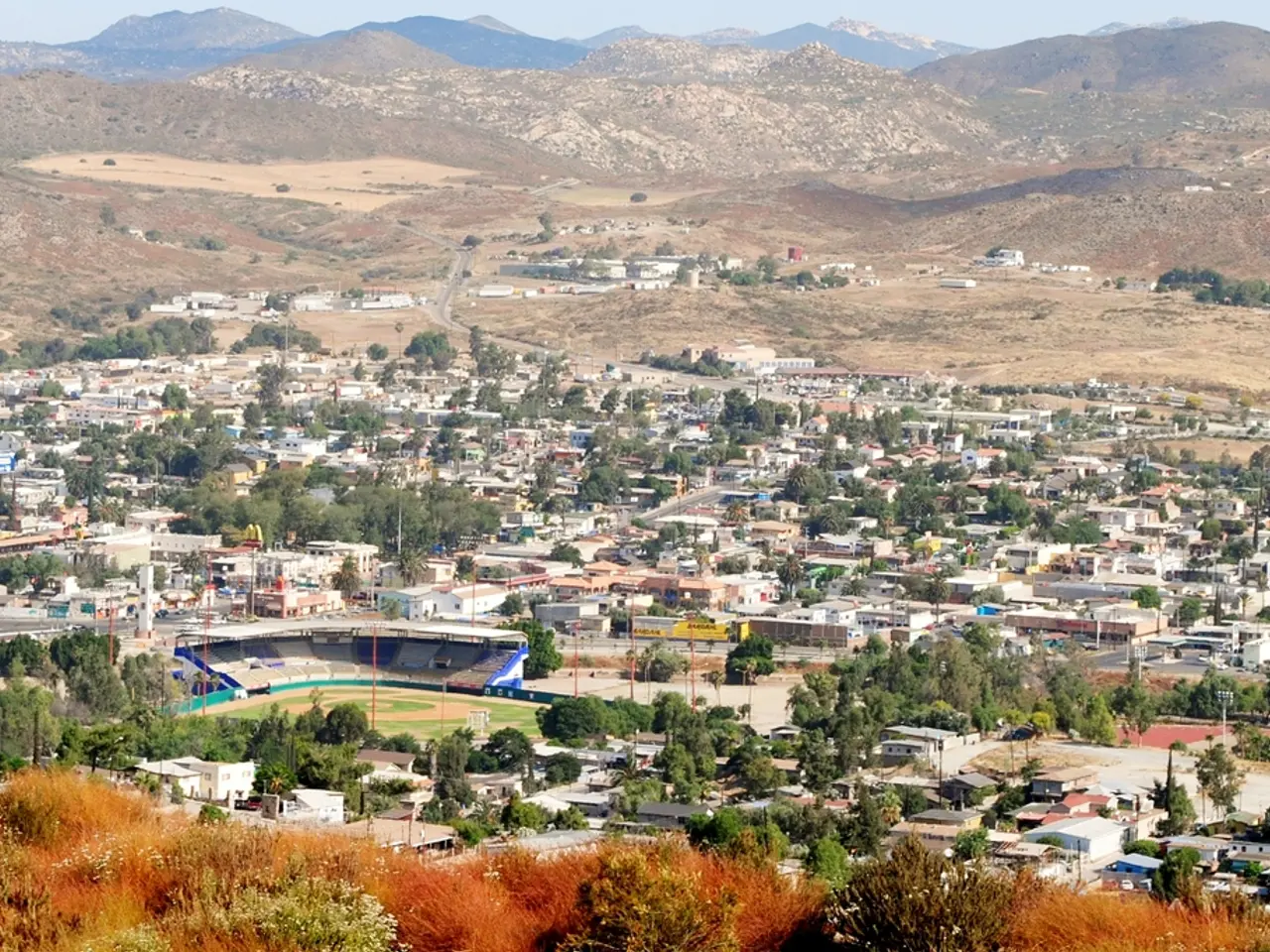In the densely populated and sweltering city of Hong Kong, climate change exacerbates hardships for the economically disadvantaged
In the bustling city of Hong Kong, a housing crisis and a climate crisis intertwine, affecting the lives of thousands living in subdivided units. These compact dwellings, often referred to as cage homes or illegal rooftop flats, house an estimated 220,000 people.
Tenants in these units commonly pay more than HK$3,000 ($382 USD) monthly in rent, yet they are plagued by hazardous and often illegal conditions. The units are often poorly ventilated, windowless, and infested with pests like cockroaches, rats, and bed bugs. The extreme heat inside these flats is not just a result of poor housing but also an intensifying climate crisis, with the number of "very hot days" in Hong Kong increasing significantly over the years.
Residents of low-income districts, such as Sham Shui Po, have reported difficulty sleeping due to the heat. The urban heat island effect in these areas reduces nighttime cooling, leading to higher overnight temperatures. Indoor temperatures in these flats can reach as high as 41°C (105.8°F), even when it's cooler outside. By mid-afternoon, the heat becomes unbearable for many residents.
The government's introduction of the Basic Housing Units framework aims to phase out substandard subdivided flats and set minimum livability standards, including ventilation and space requirements. However, progress and enforcement have been slow. Concerned groups, such as CarbonCare InnoLab and the Kwai Chung Subdivided Units Kai Fong Association, urge the provision of electricity allowances to tenants to alleviate the financial burden of running air-conditioning during extreme heat. Proposals to expand community cooling centres aim to offer safe, cooler places for residents to shelter during heatwaves.
Advocacy groups call for subsidies on utilities to help low-income residents cope with extreme heat and avoid heat-related illnesses and sleep deprivation caused by inadequate cooling. Some reforms propose minimum spatial and ventilation standards to improve living conditions, but concerns about possible rent hikes or evictions due to legality issues of certain units persist.
Yeung Fong-yan and her 13-year-old grandson live in a rooftop structure in a crowded district of Sham Shui Po. Many low-income families in Sham Shui Po have been pushed into makeshift housing due to soaring rents and a shortage of public homes. Despite being one of the world's wealthiest cities on paper, Hong Kong continues to face a severe shortage of liveable, accessible homes.
The heat and the housing crisis are not just issues for individual residents but reflect a broader systemic problem. Some experts argue that the real issue behind the subdivided housing crisis isn't just property prices or a lack of land, but a system that overlooks those most in need.
The Hong Kong government aims to build 30,000 light public housing units by 2027-28 and has 21,000 transitional housing units in place or on the way. However, these efforts may not be enough to address the urgent needs of those living in substandard housing. As the climate crisis intensifies and housing affordability remains a challenge, finding sustainable solutions to improve living conditions for vulnerable residents in Hong Kong becomes increasingly crucial.
- The climate crisis intensifying in Asia, such as the one in Hong Kong, poses significant challenges to the health and wellness of its residents, as demonstrated by the soaring temperatures and heat-related issues in subdivided units.
- Environmental science experts call attention to the ever-growing concern of climate change and its impact on the world, focusing particularly on the environmental conditions of urban areas like Hong Kong, where the frequency of "very hot days" is on a constant rise.
- Aside from environmental concerns, policy and legislation in Asia, specifically concerning Hong Kong, are being scrutinized in addressing the housing crisis and ensuring access to liveable homes for all its residents.
- Alongside mental health issues, the general news flows with accounts of the struggles of low-income families in Hong Kong, as they navigate life in makeshift homes due to the city's high rents and shortage of public housing, searching for sustainable solutions.
- Recently, science and policy discourse has been tethered to the matters of climate change and policy, recognizing the importance of addressing both issues to ensure the overall health, wellness, and living conditions of the world's population, especially in high-density urban environments like Hong Kong.




